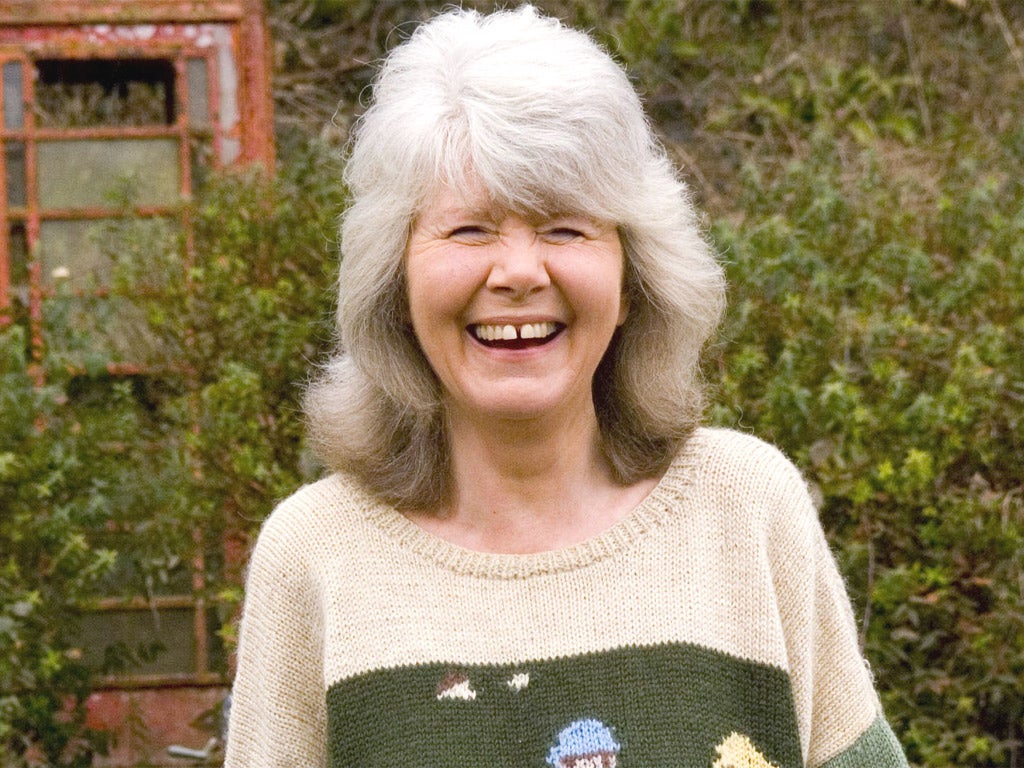The Independent's journalism is supported by our readers. When you purchase through links on our site, we may earn commission.
Is Jilly Cooper right – has running really replaced our sex drive?
The racy novelist said she thinks pounding pavements has taken the place of the, er, more X-rated form of pounding. Helen Coffey asks if she’s right – and whether exercise is really to blame for us going off the boil in the bedroom department


As I stood cheering on some friends while they completed a half marathon race at the weekend, I pondered aloud whether I should join a running club.
Watching the sheer range of athletic bodies crossing the finish line, I was thinking less about shaving time off my 5km PB and more about potential trysts. “Some of them must be single?” I commented. “One minute you’re working up a sweat together, and the next you’re, well, working up a sweat together...”
It was as though I was voicing the plot of an as-yet-unwritten raunchy new Jilly Cooper novel – one titled RUNNERS! or STRIDERS! or some such. Except these days, the Dame of Smut thinks we’re focusing a bit too much on pounding pavements and not enough on pounding, er, other things, according to a recent interview. The beloved author of multiple racy novels, Cooper has plenty to say on the subject of sex (“Life is quite short of joy and I think sex is heaven,” she said during a BBC documentary. “I think one should have as much as you can, and in books I think you should have quite a lot, too”). But if anything, she argues, the modern-day obsession with exercise is responsible for waning libidos.
Speaking just before her 1988 book Rivals hits the small screen on Disney+, its adaptation featuring an all-star cast including David Tennant and Aidan Turner, Cooper claimed that times have changed since she wrote the second bonkbuster in her Rutshire Chronicles series. She believes that, in contrast to the world of upper-class, horse-owning, countryside-dwelling, riding-crop-wielding Brits in which her novels are set – where sex is practically a national sport – we’re all “at it” much less nowadays. Furthermore, Cooper has come to the conclusion that lots of people are, quite literally, running away from physical intimacy.
“I’m convinced the reason people aren’t having as much sex is because everybody takes so much exercise,” she said. “Everybody is running nowadays, and if they’re not, they’re going to the gym. And how can you possibly have sex when you’re so exhausted?”
In an interview with The Observer, Cooper doubled down when asked by Rivals star Tennant, who is set to play Lord Baddingham in the upcoming eight-part saga, what she thought was the most “powerful pull on human nature”.
“If you’re passionately in love, it would be sex, wouldn’t it?” she responded. “It really would. But I think that less, now. People are all going jogging, aren’t they? Running. Everybody runs miles and miles and miles, and I don’t think there is so much sex now.”

Statistically, Cooper may well be on to something – at least with regard to the frequency of assignations. Research suggests that adults and teenagers in the UK are having less sex now than they were 30 years ago. The National Survey of Sexual Attitudes and Lifestyles (Natsal) has been collecting information about the public’s sexual experiences for over three decades; researchers found that the average number of occasions on which sex took place decreased in each survey they took. It dropped from five times a month in 1991 to four times a month in 2001, decreasing again to three per month in 2012. On top of that, one in five Brits are not satisfied with their sex lives, according to new research from Superdrug Online Doctor.
But forget cries of “No sex please, we’re British”: it’s a pattern that has been observed in multiple countries. A study published in 2021, using data from the National Survey of Sexual Health and Behavior, found a similar trend when comparing responses from 8,500 US participants taken in 2009 and 2018. Today’s Americans, it concluded, were having less sex than previous generations. “If you look around the world, other comparable studies show a decrease as well. So it seems to be a real international trend,” Soazig Clifton, the academic director of Natsal at University College London, told the BBC of the findings.
We must all have found, if not better, then certainly more diverting things to fill our time with: increasingly protracted mobile phone use and all-encompassing social media addictions; constant access to boxsets on streaming services, which mean we may never again have to resort to “making our own entertainment”.
While correlation is not causation, Cooper could be on to something when it comes to jogging
And, while correlation is not causation, Cooper could be on to something when it comes to jogging. Certainly, more of us are hot-footing it recreationally than was the case 30 years ago. One in five Brits over the age of 16 say they go running at least once a month, according to one 2024 survey. Another poll by Sport England suggested that the number of people participating in regular running activities in England has increased by 48 per cent over the past decade, and the popularity of running clubs has seen a boom over the last couple of years, too. Though this might not be the disaster Cooper paints it as. In some quarters at least, these clubs are even being seen as a much more effective, real-life alternative to dating apps.
“It was quite a liberating way to meet someone,” one woman told The Independent of meeting her partner at a running club. “It takes the pressure off, because you’ve got this common interest; you’re both doing something you love. And you’re doing it for you.”
As a running convert who’s done three marathons (each of which I was single for, I now realise), I hope it’s not an either/or situation when it comes to exercise and coitus. While both release feel-good endorphins, there is, after all, no contest when it comes to which would be deemed the more enjoyable activity by most.

And yet I do understand Cooper’s point. There is something about the potentially puritanical pursuit of physical perfection that can feel very much at odds with the no-holds-barred vulnerability inherent in sex. Undressing and letting someone see and experience you in all your imperfect glory requires something very different – and, arguably, much more challenging – than pumping iron at the gym. Perhaps it’s as simple as strict control of your body versus surrendering and letting go; spartan rigour and discipline versus pleasure and indulgence; and, depending on how and why we work out, the propensity to get hung up and focus all our attention on our own body, rather than someone else’s.
By all means, get fit, healthy and active. Just remember the two magic words – “rest days” – and that there is an alternative, Dame Jilly-approved way to break a sweat should you so wish...
Join our commenting forum
Join thought-provoking conversations, follow other Independent readers and see their replies
Comments
Bookmark popover
Removed from bookmarks